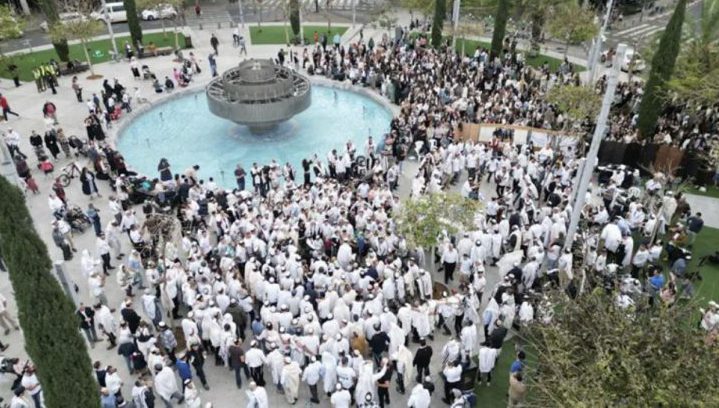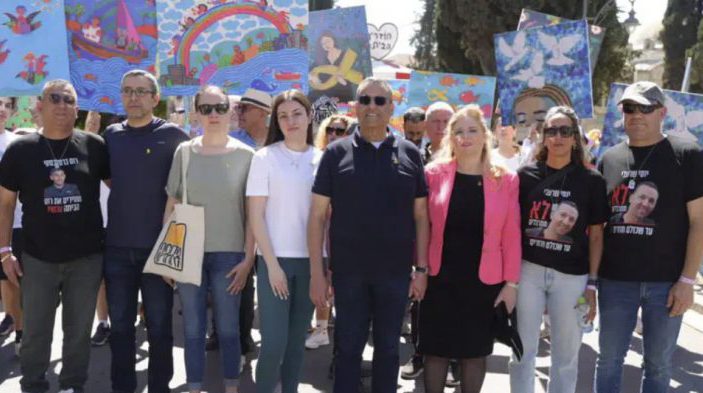Supreme Court justices criticize Tel Aviv municipality for its opposition to the traditional gender-segregated prayers in public places in its opposition to the prayers of the Rosh Yehudi organization.
The Supreme Court published today (Thursday) the reasoning for the ruling on the issue of gender-segregated prayers in public spaces in Tel Aviv, which was given about six months ago following an appeal filed by the “Rosh Yehudi” organization.
In the original ruling, the court ordered the municipality to allow gender-segregated prayers to be held in Meir Park, after the municipality refused to allow this in Dizengoff Square.
Justice Yechiel Kasher wrote in his reasoning that “the municipality’s clear position embodies a principled, sweeping and absolute preference for maintaining gender nonsegregation in public spaces over any other consideration, and whatever the circumstances may be… it seems that the clear harm that this entails for those who wish to hold Orthodox Jewish prayers, and their right to equality, was not considered at all by the municipality.”
The judge added in a pointed criticism: “During the discussion before us, the answer was even given that the municipality has nothing against Orthodox prayer as long as it is not held in a manner that separates women and men, an answer that seems immaterial to clarify why it cannot be heard.”
Kasher also addressed the message implied by the municipality’s policy, according to which “prayer in the manner in which his ancestors and forefathers prayed has a flaw, and therefore it is forbidden to hold it in public.” This, he said, “even when the applicant refers to the holiest day of the year for the Jewish religion.”
Justice David Mintz echoed the criticism and ruled that “the municipality did not give even the slightest weight to the rights to equality and freedom of worship of the religious groups that customarily hold prayers in a gender-separated manner, as well as to the serious violation of these rights that its policy embodies.”
Mintz rejected the municipality’s claim that gender separation violates the principle of equality and stated that even if this were the case, “violation of one type of equality (between men and women) does not serve as an inexhaustible justification for violating another type of equality (between those who practice one religious sect and another, or between one religion and another).”
In their reasoning, the judges also criticized the “privileged elders of the first Hebrew city,” which, according to them, “lost sight of the extent to which their position is difficult and harmful to a significant population” that seeks to pray according to the tradition of its ancestors.
The chairman of “Rosh Yehudi,” Israel Zeira, responded to the publication of the judges’ reasoning: “We welcome the court’s decision, which ruled the obvious – Judaism also has rights in Tel Aviv. However, we believe that the key to a solution lies in dialogue and respectful discourse that will enable a life together, as befits the character of the first Hebrew city.”
Despite the precedent-setting ruling, the Rosh Yehudi organization ultimately decided to cancel the outdoor prayer for fear of clashes. At the same time, the ruling may serve as a basis for the continued struggle of the Orthodox to hold prayers according to their custom in the public space in Tel Aviv and other places throughout the country.





